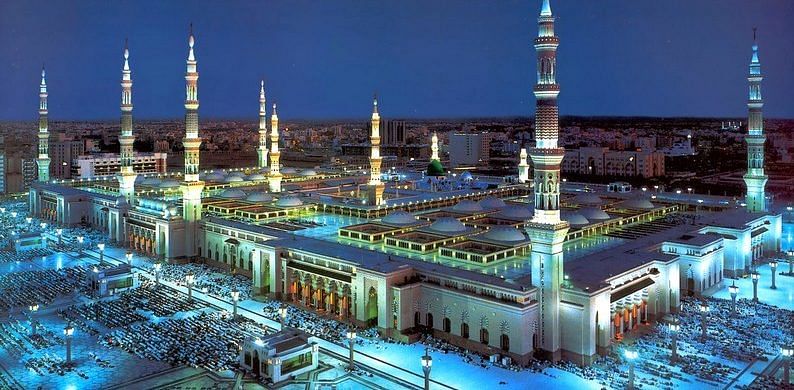Medina, before the Prophet arrived, was home to disparate groups. It is believed he brought them together with his Islamic life teachings.
New Delhi: Pakistan’s prime ministerial front-runner Imran Khan, in his victory speech Thursday, invoked the city of Medina during the Prophet’s time to describe his vision for the country.
“Briefly, I want to describe the kind of Pakistan I want to see… look, my inspiration is the Prophet Muhammad, the city of Medina that he founded, how it was based on humanity. For the first time, the state was formed based on humanitarianism,” Al Jazeera quoted the former cricketer as saying.
Medina, along with Mecca, is considered the birthplace of Islam, but what exactly was its role in the Prophet’s journey after he arrived here in the seventh century, and why is it a model for a modern nation? ThePrint explains.
In the early 600s, before the Prophet arrived there in 622 AD, Medina was home to disparate groups often at conflict with each other. It is believed that the groups came together under the single guidance and Islamic life teachings of Prophet Muhammad.
Earlier known as Yathrib, Medina owes its current name to the arrival of the Prophet and his followers. It comes from the Arabic term for ‘The Prophet’s City’, Madinat Al Nabi.
Yathrib, an agricultural settlement, was dominated by Arabs who were further divided into eight identity sub-groups. Among the Jewish minority, there were three major clans.
These different groups were said to have been in constant conflict, which resulted in frequent military face-offs. Amid this period of unrest, the need for a mediator was felt.
Meanwhile, in Mecca, Prophet Muhammad was facing hostility over his bid to propagate Islam and his criticism of many of the religious practices followed by the tribes. At the time, there were few takers for his idea of faith in one God and loyalty to one power, coupled with the idea of heaven and hell, among other religious beliefs, and the situation soon grew tense for him and his followers.
As a result, he began looking to other regions of the Arabian landscape. Around the same time, six men from Yathrib were roused by Prophet Muhammad’s teachings. This led 12 men to pledge allegiance to Prophet Muhammad, who they thought would be the best adjudicator for their city.
Hijrah: Prophet Mohammad’s migration from Mecca to Medina
The migration of Prophet Muhammad and his followers from Mecca to Medina is a starred event in the history of Islam, popularly known as hijrah.
During his 10-year stay in Medina from 622 CE to 632 CE, Prophet Muhammad was involved in a host of political and religious expansion efforts in and around adjoining towns, including Mecca, but faced enormous resistance from certain communities.
Relations with the tribe led by Aby Sufyan, a powerful and affluent leader of Mecca, were particularly tense. After a series of clashes with Sufyan and his army along with other Meccans, Prophet Muhammad came out as the ultimate warrior, compelling them to surrender, with the surrounding Bedouin tribes subsequently embracing Islam.
Clashes ensued with Jewish tribes as well, and the Jewish fighters who survived after three major battles are believed to have been subjected to stringent punishment, including execution and imprisonment, and their wives and children sold off as slaves.
Constitution of Medina and its ramifications on Medina and Islam
In Medina under the Prophet, a constitution was drafted to oversee relations between different communities and tribes, as well as their organisation.
While some scholars argue that the constitution was drafted with a pre-conceived notion that Prophet Muhammad had been accepted as the messenger of God, and that Jews or pagans held a subordinate position in society but as allies of the believers of Islam, others say its provisions were “progressive” and upheld the principles of solidarity, mutual responsibility, individual rights, etc.
